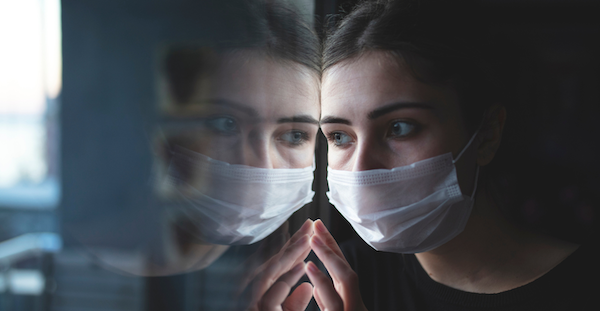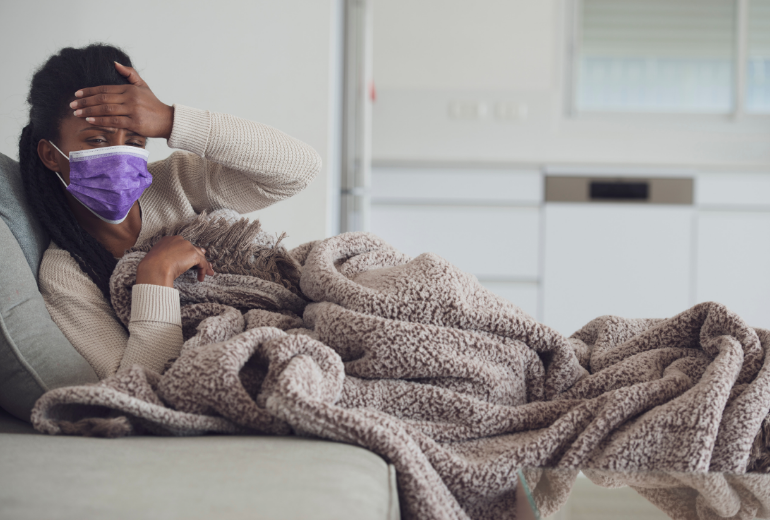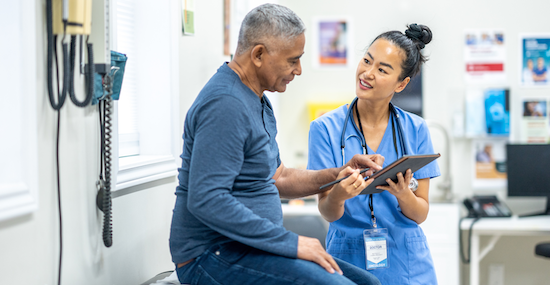Error message
Is the COVID-19 Pandemic Really Over
June 14, 2023The U.S. Department of Health and Human Services declared the COVID-19 public health emergency officially over as of May 11, 2023. While COVID-19 remains a public health priority, the government has transitioned away from the emergency phase that gripped our country for three years. You might be wondering what this means and how COVID-19 will impact our day-to-day lives moving forward.
As a family medicine physician in the Tallahassee Memorial Family Medicine Residency Program who sees patients of all ages with a variety of health complications, here are my key recommendations to keep in mind now that the COVID-19 public health emergency is over.
1. Don’t Let Your Guard Down
After years of navigating the challenges and curveballs of the COVID-19 pandemic, the U.S. Department of Health and Human Services, along with the World Health Organization, have officially declared an end to this public health emergency. While most precautions in public places have already been relaxed, it is important to remember that COVID-19 is still with us and will require continued vigilance in doing what we can to stay healthy.
Even though vaccination rates have gone up and COVID-19 cases have gone down, we still must prioritize and protect our health – the virus has not been eliminated and the potential remains for new variants to continue to emerge. As we enjoy relaxed social gatherings, freely hugging our friends and family, resuming our travel plans and simply seeing smiles again, we need to continue to take measures to protect ourselves, such practicing good hand hygiene and social distancing where appropriate.
2. Stay Up to Date with COVID-19 Vaccinations
Vaccinations have proven highly effective for controlling the spread of the COVID-19 virus, as well as significantly reducing the severity of symptoms if you contract the virus. Vaccines have also helped to slow the overall hospitalization and death rates related to COVID-19. Ultimately, these vaccines are what have allowed us to return of a sense of normalcy in our daily lives.
Now, even though the end of the pandemic has officially been declared, we can’t simply forget about our vaccinations – especially as new variants are expected to occur.
According to the Centers for Disease Control and Prevention, the original, or “monovalent,” Pfizer-BioNTech and Moderna vaccines are no longer authorized for use in the United States, and the Johnson & Johnson vaccine has been declared expired. Both Pfizer-BioNTech and Moderna have developed updated, or “bivalent,” vaccines. Note that these updated vaccines protect against both the original virus and the predominant Omicron variants. Novavax is a monovalent vaccine, but it remains authorized for use as a 2-dose primary series, and as a booster dose in certain situations.
In general, everyone aged 6 years and older is recommended to get one updated COVID-19 vaccine, regardless of whether they received the original vaccines. Those who are older than 65, or who are immunocompromised, are recommended to get an additional dose of the updated vaccine.
The CDC offers more specific recommendations for staying up to date with your COVID-19 vaccines according to your age group and susceptibility to the virus. The CDC clearly outlines your next steps based on age and previous COVID-19 vaccination history. To find COVID-19 vaccination locations near you, visit vaccines.gov, text your zip code to 438829, or call 1-800-232-0233.
The available vaccines are being continually monitored and updated to provide the best possible protection against new virus strains that might be more transmissible and more resistant to the original vaccines. We urge our patients to stay informed about vaccine updates and availability, get recommended booster shots and ultimately pay close attention to the continued guidance from health authorities.
3. Don’t Forget Your Mask Just Yet
Although COVID-19 cases have drastically declined and lockdown restrictions have relaxed, we shouldn’t ditch our masks just yet. The virus has not been eliminated, and the value of wearing masks to reduce the risk of infection is undeniable, especially as new variants with increased transmissibility and resistance to vaccines continue to emerge.
Masks remain an important to tool to protect your health – particularly in crowded venues like airports or large events, and especially for seniors, immunocompromised individuals and those with other underlying health conditions. For those who are more vulnerable to severe illness, wearing a mask is a great way to add an extra layer of protection against the COVID-19 virus
4. Eat a Nutrient-Rich Diet
Many are still struggling with long COVID, or the long-term health impacts of having suffered from COVID-19. Consuming a nutrient-rich diet is crucial to supporting our overall health including boosting our immune response, reducing inflammation in the body, supporting our respiratory functions and managing other underlying health conditions.
Our immune system is our first line of defense against illness, so it is crucial to support a strong immune system by nourishing our bodies with an abundance of fruits and vegetables, along with whole grains, lean proteins and healthy fats. Vitamins A, C, D, and E, as well as minerals like zinc and iron, are especially crucial to boost the immune system, which ultimately strengthens our defense against the virus and its associated complications.
If you do contract the virus or are struggling with the long-term impacts of having had the virus, a nutrient-rich diet can help to mitigate symptoms. The anti-inflammatory compounds found in many fruits, vegetables, nuts, seeds and fatty fish can support our body’s ability to manage inflammatory responses due to the virus. This reduces the risk of complications for respiratory health and supports our body’s defense against respiratory illnesses.
Prioritizing a healthy diet is especially critical for individuals with underlying health conditions like obesity, diabetes or heart disease. A nutritious diet can aid in managing weight and blood sugar levels, as well as promote cardiovascular health so we are better positioned to protect ourselves against COVID-19.
Ultimately, eating a variety of whole foods will provide our bodies with the nutrients, vitamins and minerals that are crucial for maintaining our overall health and well-being, which strengthens our defense against infection and improves our resilience against complications.
5. Be Active
Physical activity is crucial to our health for many reasons, but it’s especially important with respect to COVID-19 as it boosts the immune system, reduces inflammation, supports respiratory health, promotes metabolic health and protects mental health.
Maintaining an active lifestyle – such as walking, jogging, swimming, cycling, yoga and more – promotes circulation and improves lung function and capacity. This helps to reduce inflammation and more efficiently deliver oxygen throughout the body. Regular exercise is also critical for increasing our metabolism, burning calories and maintaining a healthy body weight – which can enhance our body’s overall resilience against COVID-19.
Finally, we can’t overlook the importance of physical activity on our mental health. Even in this “post-pandemic era,” many people are still struggling with mental health conditions triggered or exacerbated by COVID-19 and the effects of the worldwide response to the pandemic. However, regular physical activity stimulates the release of endorphins which can help to manage stress, anxiety and depression to improve overall mental well-being.
What To Do If You Get COVID-19 Now
Although COVID-19 cases have decreased, the virus is still here and people are still being infected. Many COVID-19 testing sites have closed, but there are still plenty of available testing locations. If you have a stash of at-home COVID-19 tests, you’ll want to make sure these tests haven’t expired.
Fortunately, if you test positive for COVID-19, many treatments for the virus have been developed that weren’t available earlier in the pandemic. Veklury (Remdesivir) is an intravenous antiviral used for patients hospitalized with COVID-19, but you can also talk to your healthcare provider about at-home oral antiviral treatments, like Paxlovid and Lolnupiravir. These treatments can significantly reduce the severity and duration of symptoms.
While we’re all happy to celebrate the end of the emergency phase of the coronavirus pandemic, it’s important to remain vigilant against COVID-19 and be prepared for a pandemic – whether it’s the coronavirus or another disease. The best advocate for your own health and well-being will always be you – meaning it’s important to stay healthy and active and speak to your primary care provider about the steps you can take to lower your risk against disease.
If you need a primary care provider you can search for one through TMH Physician Partners, or you may seek care through our Family Residency Medicine Program.





